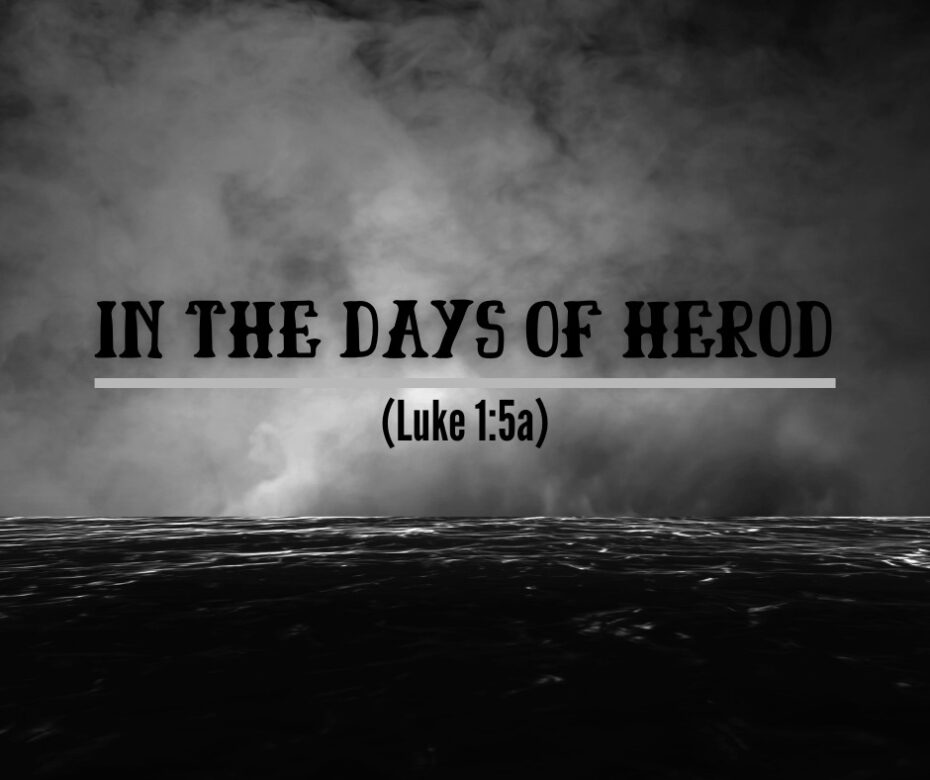Charles Dickens’s A Tale of Two Cities opens with the memorable line, “It was the best of the times, it was the worst of times…” Some periods are infamous for their difficulty. Merely naming the age evokes the hard times that people experienced, as with the Irish Potato Famine, the Holodomor, the Great Depression, Vietnam, the Great Recession, or 9/11. And now it looks like “2020” will be next on the list of years that will live on in infamy.
Luke 1:5 refers to that kind of horrible time: There was in the days of Herod, the king of Judea (37-4 BC). Notice that Luke will be making his case for Christ by rooting his evidence in history. Christianity is a historical religion. Unlike the myths of Greece or India, the truth of Christianity depends on its corresponding to reality because it makes claims about how God acted in history. If Theophilus was to be assured of the thing he was taught, he needed to know where in history the Christian story began. So Luke begins his narrative with Herod.
To anyone familiar with Israel’s history, the name of Herod would bring up dark thoughts of a sinister age. After all, Herod was a moral monster and a pretender to Israel’s throne. He had no divine right to it since he was not a descendant of David. In fact, he was not even ethnically Jewish, but rather an Idumean descendant of Esau. And if you’re familiar with the drama of Scripture, you know that Esau is synonymous with being an enemy of God. He infamously despised his birthright (Gen 25:33; Heb 12:16-17), which included being the ancestor of the Messiah, and instead, he became the ancestor of a long line of Israel’s enemies, including Edom, Amalek, Haman, and now Herod.
In fact, Herod was a puppet king who ruled thanks to pagan Rome. He tried to win the people’s favor using political means, such as re-building the temple. Meanwhile, he did not hesitate to murder his own family and friends (including his wife and sons), or even massacre hundreds of children (Matt 2:1-23), all to stay in power.
In sum, these were dark days in Israel’s history. She needed her Messiah. In fact, Daniel’s sixty-nine-week timeline for Messiah the Prince’s arrival was quickly coming to a head (Daniel 9:20-27), and godly people longed for God’s deliverance. But God had been prophetically silent for several centuries. Would the help come? It would. In God’s own time, in God’s own way, according to God’s own plan. It is hard to wait. But that is the difference between the living God and a genie. He is not at your beck and call.
But finally, after centuries of prophetic silence, in the infamous days of Herod, God was about to speak into the darkness.


